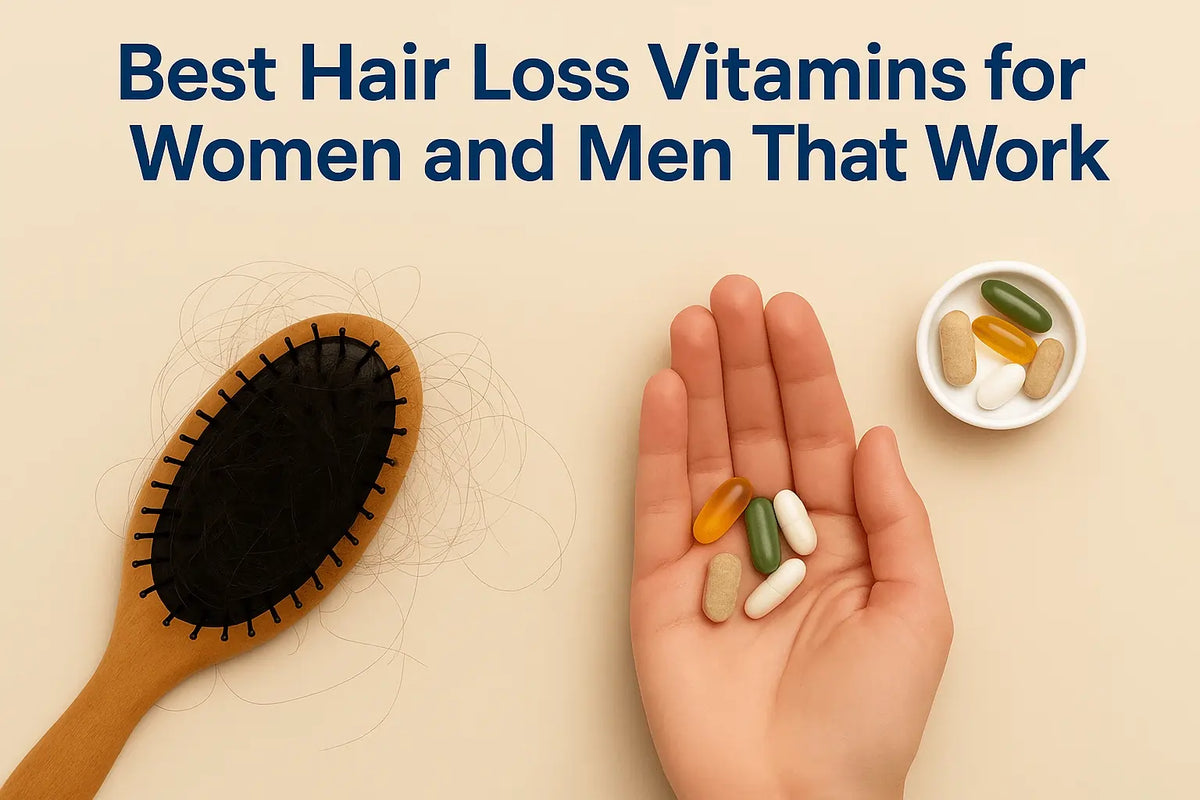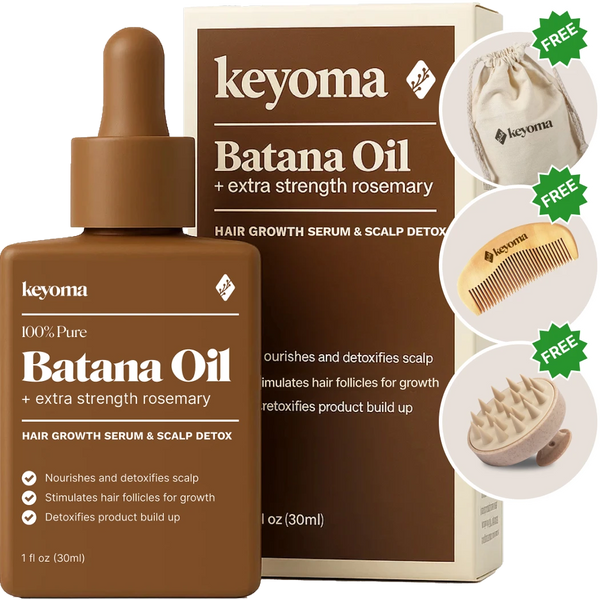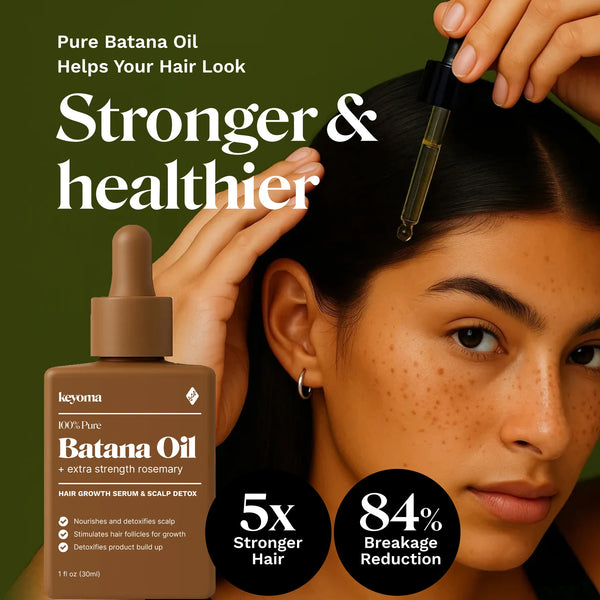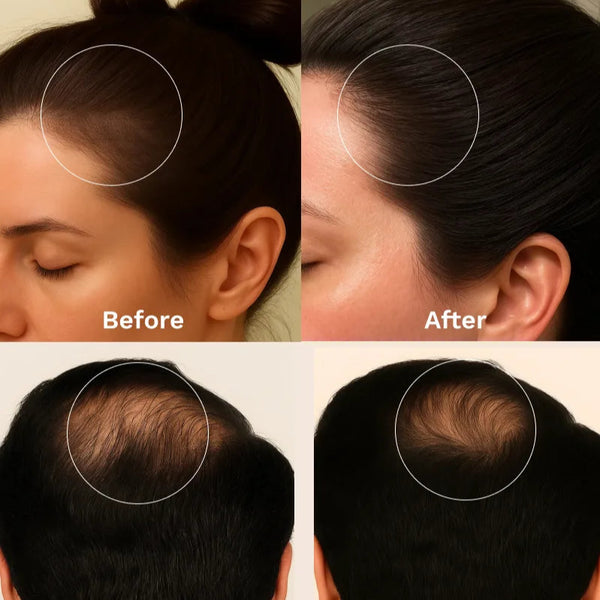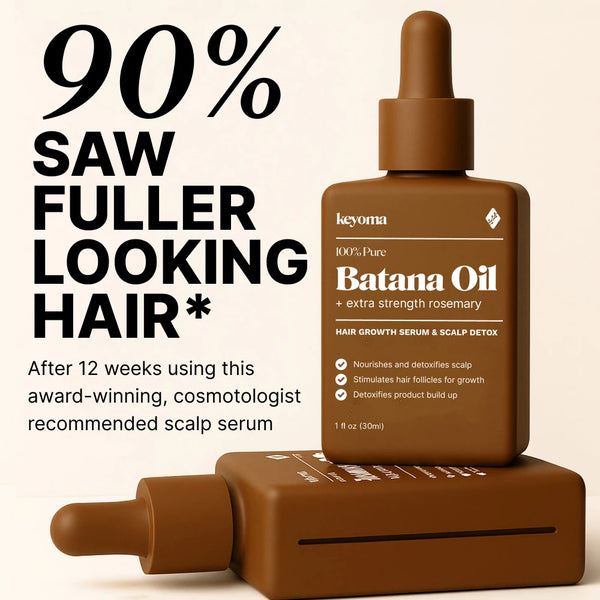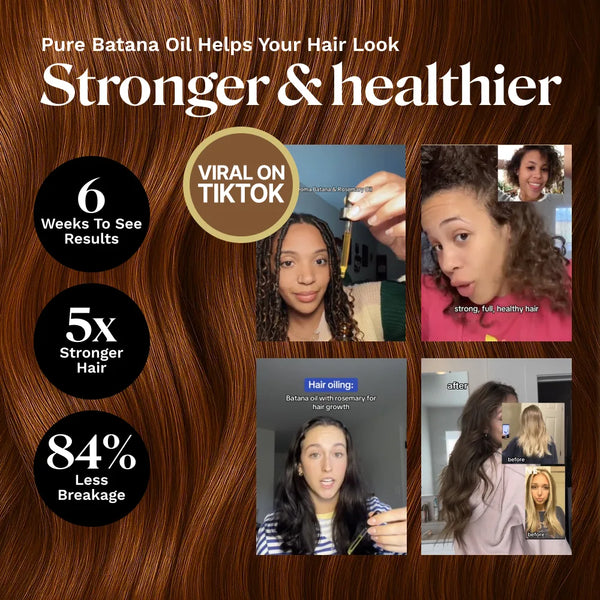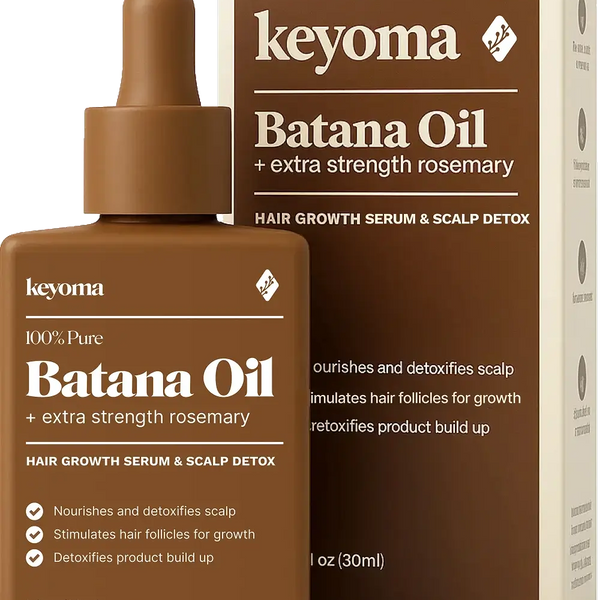In this article
You may have already tried oils and serums.
But if your hair keeps thinning or shedding, it is time to look deeper—inside your body.
Many types of hair loss are tied to nutrient gaps.
The right vitamins can support regrowth, reduce shedding, and strengthen your strands from the inside out.
But not all formulas work. And not all hair loss comes from the same cause.
Here is what you need to know.
Do Hair Loss Vitamins Really Work?
Yes—but only when they fill a real gap.
Hair loss linked to nutrient deficiencies is often overlooked. But when your body lacks the raw materials it needs to build strong hair, it stops producing healthy strands.
Here are common deficiencies tied to hair loss:
- Iron: Carries oxygen to your follicles
- Vitamin D: Helps regulate follicle cycling
- Zinc: Balances hormones and supports scalp health
- Biotin: Helps build keratin, a core hair protein
- Vitamin A & E: Manage inflammation and oxidative stress
If you are low in any of these, your hair will likely show it first.
The Best Vitamins for Hair Loss (Backed by Studies)
You do not need a dozen pills.
You need the right ones in the right amounts.

Biotin (Vitamin B7)
Helps your body make keratin, which strengthens hair and prevents breakage. Most people need around 30 micrograms per day. Too much can cause skin irritation or digestive upset. You will find biotin in eggs, salmon, sweet potatoes, and nuts.
Vitamin D
Supports healthy follicle cycling and immune balance, especially for people with alopecia areata. Adults generally need 600–800 IU daily. Excessive intake may lead to calcium buildup or kidney stress. Natural sources include sunlight, fatty fish, and fortified foods.
Iron
Delivers oxygen to your follicles—essential for women during pregnancy or menstruation. Women typically need 18 mg per day; men need less . Too much can cause nausea or constipation. Red meat, lentils, and spinach are strong sources.
Zinc
Regulates DHT levels and supports scalp repair. Adults need 8–11 mg daily. High doses can affect copper levels and immunity. You can get zinc from pumpkin seeds, beef, and shellfish.
Vitamin A
Encourages cell renewal in the scalp, but only in balanced amounts. The recommended daily amount is 700–900 mcg. Excessive intake can trigger hair shedding . Carrots, sweet potatoes, and leafy greens are excellent options.
Vitamin E
Acts as an antioxidant, helping to protect your hair from damage caused by stress or inflammation. The suggested daily amount is about 15 mg. Too much may interfere with blood clotting. Find it naturally in almonds, sunflower seeds, and avocado.
Vitamin C
Supports collagen production, which helps anchor your strands and protect the scalp. Adults generally need 75–90 mg daily. High doses may lead to digestive discomfort or kidney strain. Found in citrus fruits, strawberries, and bell peppers.
Folic Acid (Vitamin B9)
Encourages healthy cell turnover, which is essential for growing strong, healthy strands. Most adults need about 400 mcg per day, but too much can mask signs of B12 deficiency. Natural sources include leafy greens, beans, and fortified cereals.
Balance is more effective than megadosing. Aim for clean, bioavailable sources.
You can also explore science-backed supplements for a next-level you, trusted by millions for over 30 years to support health and well-being.
Choosing the Right Vitamins for Your Hair
You need to choose the right vitamins because your body, lifestyle, and hormonal patterns shape how your hair grows.
What works for someone else might not help you—because your stress levels, digestion, and deficiencies are different.
Hair loss is personal. Your solution should be too.
Hair Loss Vitamins For Women

Hormonal changes, pregnancy, and ongoing stress often lead to shedding. You may also experience more thinning postpartum or after changes in birth control.
Women age 50 and above face additional challenges like reduced nutrient absorption and shifting hormones during menopause. These factors can slow down hair growth and weaken new strands.
Look for iron to support oxygen flow, B-complex vitamins for energy and follicle health, and adaptogens like ashwagandha to help manage daily stress.
Hair Loss Vitamins For Men

Hormonal factors, especially DHT sensitivity, are a leading cause of thinning—particularly at the crown and hairline. Stress and nutritional gaps can also weaken hair growth over time.
Look for zinc to help regulate DHT, saw palmetto to support hormone balance, and biotin to strengthen new growth. These ingredients help you manage shedding and support visible density—especially if hair loss runs in your family.
Choose vitamins that match your phase—not generic blends made for everyone.
At Keyoma, we help you choose supplements that support where you are —whether that is postpartum, in your 50s, or managing stress.
What to Watch for When Evaluating Hair Supplements
Hair vitamins vary widely in quality and formulation. Paying attention to a few key details can help you choose a product that supports—not stalls—your progress.
Artificial additives: Products with dyes, artificial flavors, or excess sugars may cause irritation or disrupt gut health.
Absorption efficiency: Some delivery formats are more effective than others. Liquids and capsules typically offer better nutrient uptake than gummies or dense tablets.
Claims that sound too fast or too easy: True growth takes time. Any supplement that promises rapid hair regrowth in a few days likely overstates its benefits.
Select products that are simple, clean, and made with your body in mind—not generic promises.
Frequently Asked Questions
Do vitamins work for postpartum shedding?
Yes—especially when combined with stress support, iron, and protein.
Can kids take hair vitamins?
Kids can take hair vitamins, but only with a pediatrician’s guidance. Most formulas are designed for adults.
How long until I see results?
Hair vitamin results typically appear in 8–12 weeks of consistent use.
Which deficiency causes hair loss?
Hair loss is commonly caused by iron and vitamin D deficiency. Testing is recommended before supplementing.
When Nutrients Alone Are Not Enough, Go Deeper With Clean, Batana Oils

Hair growth is not only about taking the right vitamins.
Your body must also absorb and use them well—which depends on your digestion, stress levels, and sleep.
That is why we recommend combining internal support with topical care.
Keyoma Batana Oil helps calm inflammation, nourish follicles, and protect new growth.
At Keyoma, we offer clean, targeted supplements and topical oils designed to work together.
Whether you are postpartum, entering menopause, or managing chronic stress, we help you support your hair from all sides.
Get your Keyoma 100% pure Batana Oil with rosemary today.
It is rich in natural vitamins and antioxidants your scalp needs now. Support visible growth before the damage goes deeper.
Featured Product
100% Pure Batana Oil + Rosemary
↓Best Batana Oil to Buy↓
1 Month
Subscribe & Save
- 30-day supply delivered monthly $35
- 30% off for life $6
- Free haircare essentials kit $33
- Free custom wooden comb $10
- Free scalp massager $15
- Free eco-friendly travel bag $8
- 30-Day Money Back Guarantee
- Free Shipping
- Online portal for easy cancel, skip, or pause.
1 Month One Time Purchase
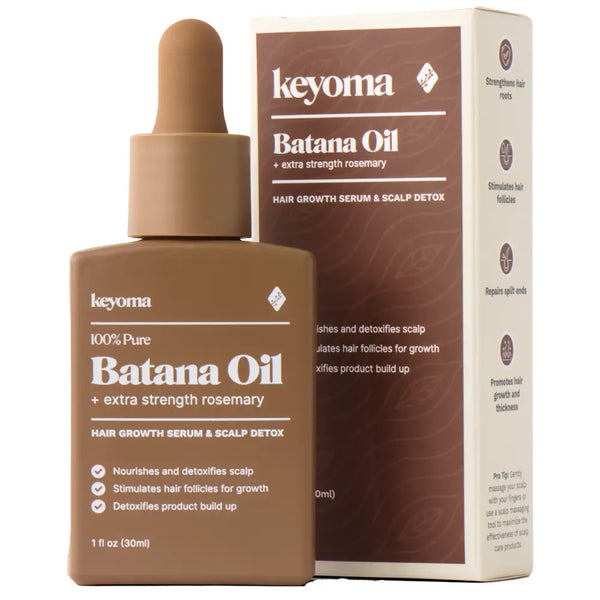
- 30-day supply $50
- 30% off for life $6
- Free haircare essentials kit $33
- Free custom wooden comb $10
- Free scalp massager $15
- Free eco-friendly travel bag $8

